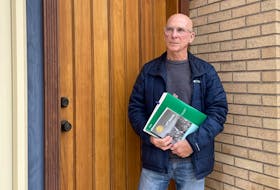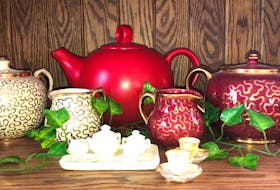A puzzle a day may keep your dementia at bay, but only to a point.
True North Psychological Services psychiatrist Dr. Mark Johnston, who conducts clinical trials and Alzheimer’s research at his Halifax and Kentville clinics, says that while completing puzzles – whether jigsaws or brain teasers – may seem to keep the brain sharp, there is no direct link between it and dementia prevention.
What is proven, according to Johnston, is the link between the practice of puzzles and the strengthening of the brain’s cognitive reserve, which can delay the onset of dementia-related diseases.
“We must differentiate between causation and association. Doing puzzles and mind exercises like sudoku or crosswords is associated, but does not directly cause, the delay in development in dementia. Incidents are not lowered, but rather delayed,” he says.
Johnston says people who have built up their cognitive reserve – or brain power – seem to develop dementia much later in life than those with smaller cognitive reserve.
He adds that studies have revealed that people who’ve completed higher education or learned a second language are also slower to develop dementia.
Johnston says these findings then beg the question of whether it’s a level of pre-existing intelligence, or the buildup of cognitive reserve, that is delaying the dementia’s development. But either way, he says keeping one’s brain challenged is never a bad thing.
But the most important thing, according to Johnston, remains socializing while completing a puzzle, or reverting to basics with physical exercise.
“The biggest thing you can do is exercising and eating well. I always tell people if you take care of your heart, you’ll take care of your head,” says Johnston. “There’s a much clearer association with that than with puzzles.”

Dr. Keri-Leigh Cassidy is a geriatric psychiatry professor at Dalhousie University and founder of the Fountain of Health Initiative of Optimal Aging. She says her research on the role of chess showed associative data in delaying dementia development, but that research including the 2020 report of the Lancet Commission showed an even stronger link between higher education and a reduction of dementia in the current cohort of seniors.
“If you exercise [your brain] with new, novel learning, as you would at university, this creates increased capacity, or cognitive reserve, which is protective. So even in the presence of pathology in the brain, you may not overtly display symptoms of dementia,” she says.
Cognitive challenge and continuing to learn is one of the five domains Cassidy has listed in her Fountain of Health research that relate to improving brain health and wellbeing. She says due to the importance of novel learning, trying something new could be even better for brain health than redoing the same types of activities or puzzles.
“If you’ve played violin, try the piano. This same principle could be applied to chess and puzzles, so if you haven’t tried them, give them a go,” she says.
Johnston says if someone enjoys puzzles and feels happy while doing one, their overall physical and mental health will ultimately benefit too, albeit in different ways than they might expect.
“Stress reduction is worth a lot. It might not be helping how people think it is, but lowering stress is a great thing to do for overall health,” he says.









